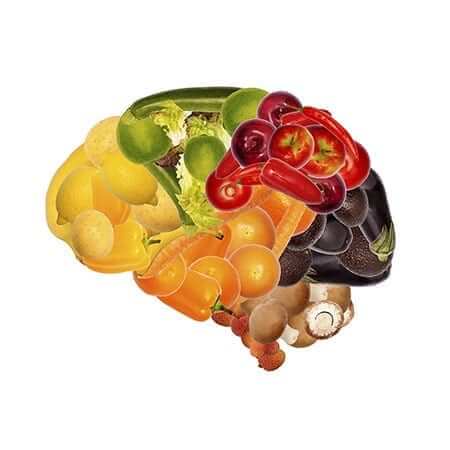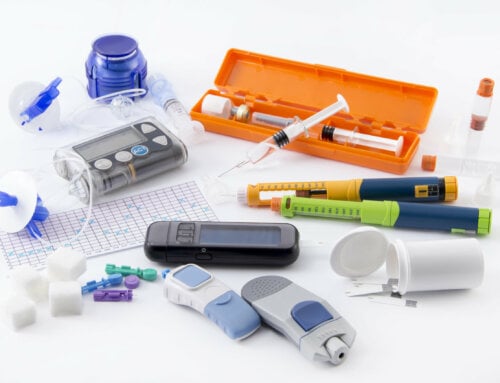Recent studies revealed people with diabetes are at a higher risk of developing dementia since diabetes affects the interior lining of your blood vessels, resulting in vascular dementia. Researchers found “people who were diagnosed with type 2 diabetes before their 60Th birthday were 3 times more likely to develop dementia than those people without diabetes.”
When you develop diabetes at age 80, your risk of dementia does not increase. Preventing or managing your diabetes is one of the most important things to reduce your risk of future dementia and protect your cognitive function. Healthy eating, exercise and weight loss are the most important steps to be taken for your diabetes management.
Dementia is a mild cognitive disorder that impairs memory, impairs thinking and impairs reasoning. It affects a person’s ability to function properly and safely.
- Dementia can affect everyone differently. It generally gets worse over time.
- Dementia may appear overnight or come on slowly over months.
- Dementia can impair your speech causing difficulty in communication.
- Dementia can lower abilities to function, decreased understanding and reduced attention span.
- Uncontrolled high blood sugars due to diabetes (over a period of time) can increase chances of dementia, tremendously.
Risk Factors that can cause Dementia:
- Genes. A family history of dementia already seen in a parent or sibling.
- Lack of physical activity or an exercise routine. Sitting “on the coach for hours” is a true risk factor.
- Loneliness/social isolation. Especially in older age.
- Medications. Certain medications adversely affect cognition or brain function. These include medications for anxiety such as Paxil, Elavil, Tofranil, Pamelor, Xanax, Ativan, Valium, and Klonopin. These medications may cause confusion and an increased risk of falls. They also cause excessive sedation, dizziness and drowsiness. Bladder agents used for incontinence such as Oxytrol and Detrol cause dry mouth, confusion, blurred vision and lead to falls. SSRIs given for depression can have a negative cognitive affect by worsening memory and thinking. Included are Prozac, Celexa and Lexapro. Sleeping agents such as Benadryl, Tylenol PM, Ambien, Lunesta and Sonata may cause excessive falls, dizziness and sedation. Narcotics cause increased bleeding, raise blood pressure, can affect kidney function, decrease memory and increase confusion.
- Repeated head injuries. Whether from constant falls or athletic accidents, repeated head injuries can eventually lead to dementia. Look out and pay attention if you hit your head more than once, pass out, have blurry vision, dizziness, confusion, become sensitive to light or nauseated. These can lead to dementia, so check with your physician.
- Obesity. Extra weight put on especially during middle age leads to dementia later in life.
- Aging. Dementia tends to occur after 65-70 years old. About 1/3 of people 85 and older show signs of the disease.
- Loss of sense of smell. Older adults who have trouble identifying odors or smells are more than twice as likely to have dementia than those with a good sense of smell.
- Smoking. Tobacco damages blood vessels and blood flow leading to dementia.
- Cardiovascular disease. This includes hypertension and high cholesterol in middle age which damages blood vessels leading to vascular dementia. Over 450,000 older people in the UK were studied. “Those found in poor cardiovascular health before the age of 45 had a 25% higher chance of developing dementia compared to those with better cardiac health.” Premature heart disease is a huge factor on brain health. Heart disease slows blood flow to your brain.
- Depression. Those who suffer with depression tend to develop dementia more frequently when their depression is not treated.
- Being a female. Females have twice the risk of dementia.
- Air Pollution. Older adults who lived in areas with the highest yearly concentration of air pollution were 1.4 times more likely to get dementia. Nitrogen dioxide (NO2) caused the most harm along with micro-particles in the air.
- Lack of quality sleep. Poor sleep and lack of sleep eventually raise your risk of dementia. Sleep habit variations over the years may increase cognitive impairment and dementia as you age. People with the most variation in their sleep habits have more than 3 times the amount of cognitive impairment compared to someone who has consistent and routine sleep habits. Deep sleep or slow-wave sleep helps flush out the brain of toxins which accumulate when you are awake. Aging causes less restorative stages of sleep.
Your Brain
Your brain remains active even during sleep. Your brain has three main regions each with a specific job. All of the parts work together through nerve cells called neurons. Your brain has the ability to think, learn and remember. It basically controls everything in your body. It processes your emotions, interprets information, and regulates multiple bodily functions. It is where intelligence, creativity and memory are located.
Your brain health is connected to the overall health of your physical body. The old adage “use it or lose it” applies to both your physical and mental health.
What are the signs of “early” Dementia?
- Poor judgement skills especially with sudden onset.
- Confusion with the “already known.” Getting lost even though you have been there several times before.
- Inability to concentrate. Poor concentration.
- Unable to think clearly or focus.
- Inability to follow a story or conversation.
- Changes in mood, disposition, and personality.
- Poor name recall. Can’t remember names of objects. Can’t find the proper words.
- Speaking louder than normal.
- Being more anxious, irritable, and moody.
- More fearful and suspicious.
- No empathy for others.
- Higher dependence on others.
- Withdrawal from others.
- Poor judgement. Can’t make decisions.
- Poor balance. Difficulty in walking and gait.
- Inability to remember common words.
- Forgetting where you are and where you are going.
- Forgetting to pay bills on a regular cycle.
- Inability to follow any directions. Inability to follow road signs or traffic signs. Inability to follow a familiar recipe.
- Constantly repeating questions, thoughts and behaviors.
- Inability to follow a story or conversation. Unable to repeat the story.
- Can’t recall recent events but good recall of past events.
- No ability to adapt to change. Fear of change.
- Hoarding or obsessively collecting things.
Common things will be noticed by others including impulsive behavior, lack of personal grooming, loss of money management skills, forgetting to prepare meals and forgetting to eat. No ability to recognize danger.
How to Diagnose Dementia
There is no specific one test given. Your physician, internist, neurologist, psychiatrist, gerontologist, will start with a history and physical. Blood lab tests will be ordered and performed. A test for beta-amyloid protein will be done to see if it is accumulating in your brain.
Brain scans such as CT, MRI, or PET will look for strokes, TIAS or tumors. Brain studies will be done. Genetic tests may be ordered especially if you have a previous family history of dementia. A CSF (cerebrospinal fluid test) may be done as well as a psychiatric evaluation. Cognitive testing will be done. This includes assessments of memory, problem solving, language skills, math skills and balance.
Types of Dementia
There are hundreds of different conditions that cause memory problems, confusion, problems with walking or speaking, personality and comprehension. It is important to identify the cause of dementia as early as possible to see if it can be treated.
There are treatable kinds, reversible kinds and limited option kinds of dementia. Sleep apnea, alcoholism, vitamin deficiencies, certain medications and thyroid problems may cause treatable or reversible dementia. These are usually seen in those under age 65.
The most common limited option types of dementia are:
- Alzheimer’s. This is the most common type with about 60-80% of the cases. Alzheimer’s affects more than 6 million in the US and 60 million worldwide. The actual cause is still unknown. The amount will grow to 153 million worldwide, by 2050. The numbers continue to rise. It consists of plaques and tangles in the brain which eventually destroy nerve cells leading to movement problems, behavior problems and personality changes. There is a steady progression of symptoms over the years. Alzheimer patients are very irritable, anxious and agitated possibly due to increased “brain inflammation.” Research is now focusing more on brain inflammation than tangles and plaques in the brain. Symptoms are difficult to treat.
- Vascular dementia. This is the second most common cause in 15-20% of cases of dementia. It appears very suddenly due to blocked blood flow in the brain because of a stroke, TIA or brain bleed. Vascular dementia is common with uncontrolled diabetes and high blood pressure. It exhibits short periods of sudden confusion.
- Lewy body dementia. Most of these cases are seen in those over age 50. Lewy bodies are often noted as part of Parkinson’s and are made of alpha synuclein clumps. Problems with movement, acting out dramatically during sleep and experiencing delusions are part of Lewy body dementia.
- Frontotemporal dementia. Less common.
- Mixed dementia. Usually Alzheimer’s and vascular dementia together.
- Young onset dementia. Less common.
Things to avoid if you have Dementia:
A sudden change in your environment can be extremely confusing. Moving furniture or changing rooms is difficult to adjust to. Avoid places that are too noisy or too crowded. Don’t allow multiple care givers at the same time as it is too confusing.
You need to follow and listen to one specific person. Try not to experience extremes. Extreme hot or cold temperatures will make you more agitated. Waiting too long for food or drink when you are hungry or thirsty will trigger anxiety. Make sure people are not invading your personal space and getting too close.
Things to do if you know you have Dementia
- Eat breakfast daily.
- Try to engage in meaningful activities, daily.
- Get off the couch. Sedentary lifestyle makes dementia worse.
- Do something pleasurable. Pleasure triggers the release of dopamine, the feel-good hormone. The more you release dopamine the better you will feel.
- Maintain your weight if you have a reasonable BMI. Lose weight if you are overweight or obese.
- Treat pain quickly since physical pain can easily trigger an emotional disturbance.
Physical exercise is always discussed in a diabetes care plan when learning how to improve your quality of life. It should be discussed when dementia is diagnosed too.
A constant supply of oxygenated blood from physical exercise can also assist in improving your brain function. A physical exercise plan for your diabetes is encouraged since “it promotes vascular health to protect brain tissue.”
Certain lifestyle changes can reduce your risk of getting dementia, with or without diabetes. A new study states, “Your personality may impact your risk of dementia”.
It was published in Alzheimer’s and Dementia Journal “if you are conscientious with a positive well-being, a good attitude and have a high level of life satisfaction, you are less likely to be diagnosed with dementia.” Millions of people were studied.
The more negative and neurotic you are, the higher the odds of developing dementia. Extroverts form healthy social networks of friends and family. They are usually goal-oriented, organized and responsible. Find out how to lead a healthier life each day for both your body and your mind.
Diabetes Link to Cognitive Health
Diabetes can affect multiple organs like your eyes, kidneys, nerves, heart, blood vessels and feet in a negative way when poorly managed. The earlier you develop diabetes, the more severe the diabetes is and the longer you live, the more likely you will have cognitive decline and dementia.
Your brain uses half of all the sugar circulating in your blood stream. When your blood sugar goes too high or too low, you may experience mood swings, memory issues and a reduced ability to learn. High blood sugars are dangerous to brain blood vessels and nerves.
“Brain fog” is a very common condition, although not a medical term, may develop. Brain fog is when you feel spacey, have difficulty finding the correct words, are irritable and lack the ability to focus.
High blood sugars also lead to inflammation in the brain causing poor judgment and confusion. The brain blood vessels may become clogged with plaque, just like your coronary arteries. Oxygen rich blood will not enter your brain causing brain cells to die. Even insulin plays a role in your brain health.
Insulin resistance, often seen in type 2 diabetes, can negatively impact your brain. “Insulin resistance” means your body has insulin but it is not utilizing it correctly. That raises the risk for vascular dementia, memory problems, mood swings as well as Alzheimer’s.
Low blood sugars resulting from diabetes are dangerous to the brain as well. Low blood sugars can produce symptoms such as headaches, dizziness, weakness, irritability, and confusion. If not treated, low blood sugar can result in a coma.
“Older people with diabetes have documented higher incidences of dementia, Alzheimer’s and vascular dementia compared to older people with normal blood sugars.” Forgetfulness and confusion are often present.
If and when cognitive problems develop for the patient, the diabetes care team should try to simplify the health care routine as much as possible. When the patient starts forgetting to keep their medical appointments, forgetting to renew or take medications or forgetting to prepare and eat meals, action must be taken by the care team and family.
The term “dementia” means the inability to live and function independently. The medical provider along with the family need to make sure there is a proper support system in place either in the home setting or in a medical facility.
What are we currently learning about Diabetes and Brain Health?
Over 195,000 people were studied for 8 years. They were all age 60 or older and had no dementia at the beginning of the study. After 8 years, it was found “a healthy lifestyle was associated with a lower dementia risk” even with genetic risk factors in place for Alzheimer’s and other dementias. Alzheimer’s is considered only one type of dementia.
Those who did not smoke, ate a healthy diet, were physically active and consumed low to moderate alcohol did better with their brain health. Those with high stress levels, anxiety, depression, less than 5 hours of nightly sleep, insomnia, sleep apnea and lack of vitamin B 12, had 2 times the risk of dementia.
Another study in 2020 published in Neurology found reductions in Alzheimer’s risk after following a healthy lifestyle including a Mediterranean style diet. Besides eating a well-balanced diet high in fruits and vegetables, low in saturated fat, the Mediterranean diet includes whole grains, seeds, legumes, beans, and healthy fats such as olive oil, olives, seeds, nuts, and fish. It also includes herbs, spices, and a small amount of red wine. Eating with others is also a part of the Mediterranean plan to provide a social setting.
Although there are currently multiple online games and apps stating “they can enhance cognitive function” to improve your brain, more research still needs to be done. They can’t hurt but they may not be the panacea that claim to be.
Most experts and medical professionals are confident your mind will be maintained if you continue to stick to real life activities. Whatever you do should be somewhat challenging and new to you. “A passive brain with or without diabetes has a tendency to atrophy.”
Which real life experiences can help activate your brain?
- Drive home on a different route.
- Manage any chronic diseases as best as possible. That includes your diabetes , blood pressure and cholesterol.
- Use your non-dominant hand to brush your teeth or hair.
- Eat with your non-dominant hand.
- Write with your non-dominant hand.
- Do Sudoku and keep elevating the challenge.
- Do word puzzles and jigsaw puzzles. “Puzzles activate cognitive functions like memory, perception and reasoning.”
- Look at “Where’s Waldo” pictures and find new items each time.
- Create a list of words and memorize them. Try to recall and write them down one hour later.
- Visualize. When meeting someone new, close your eyes and say their name. Learn to associate the new name with that specific face. Visualize a place, an event and close your eyes. This may help you remember more later.
- Join a choir. Learning words to songs can be challenging, pushing your mental capacities.
- Learn to play a musical instrument.
- Learn to read music if you do not know how.
- Join a book club. Read the book instead of listening on Audible. Challenge your comprehension. Pick a difficult book. Either highlight important points or write notes for your future group discussion.
- Find a part-time job in something you never did before.
- Play games. Board games, checkers, or chess. More challenging games require sharpness and memory. They also assist you in setting goals and working in a timely manner.
- Learn card games such as poker, canasta, or bridge. Try to build on the rules and memorize them.
- Learn to knit, needle point, crochet or sew.
- Do simple math problems. Start with addition and subtraction and move on to multiplication and division. First, write them down and then try to do all the math, in your head.
- Learn a new cooking cuisine.
- Eat lots of fresh fruits and vegetables.
- Avoid brain trauma by preventing falls and sports injuries. Always wear shoes or socks with grip to prevent falls.
- Limit alcohol and no smoking.
- Take up baking if you are a cook, take up cooking if you are a baker.
- Take a woodworking class.
- Learn a foreign language.
- Take adult education classes.
- Volunteer especially in something unfamiliar to you.
- Read the classics.
- Build models like ships. Small pieces with increase your coordination.
- Stay socially active. Loneliness impacts brain health. It can increase your chance of a stroke by 32%. Social isolation in the elderly can increase dementia by 26%. Just being with a group of friends in a mentally engaging activity may help preserve your cognitive function. Your brain is stimulated by discussions, participating in group courses and by sharing your thoughts and opinions.
- Enhance your fine motor skills. Seniors may naturally lose fine motor skills as they age. Skills such as buttoning a shirt, pouring a cup of coffee, using scissors, trimming your nails or holding silverware may become more difficult. Practice things to maintain the skills. Open and clench your fists. Bounce, throw and catch a ball. Paint, draw or play video games. Find a glass cutting class. Make your own greeting cards which will require cutting, folding, and printing. Try Origami. Learn to use a potter’s wheel.
- Take up ballroom, disco, tap or Salsa dancing.
- Join a Zumba class. You need to follow and learn dance moves.
- Take up a new and challenging sport. Pickle ball is big right now. It enhances your ability to use oxygen, develop balance, strength and encourages you to learn and remember new rules. Become a referee.
- Eat the MIND diet. Mediterranean-Dash Intervention for Neurodegenerative Delay includes berries, seafood, green leafy veggies, poultry, nuts, seeds, low-fat dairy, whole grains in proper portion size, less sugar, less red meat and no fried or processed foods.
- Include Tai chi in your exercise program. Tai Chi holds many benefits. “It develops a connection between what you are seeing and what you want your body to do.” It increases blood flow, decreases stress hormones and inflammatory markers. It helps with your balance and postural stability. It requires leg strength since you must do squatting moves. It is a mental workout because you must follow specific movements in a sequence. It produces mindfulness, gives you time outside and improves your sleep. “Supervised exercise has better outcomes than unsupervised exercise.” The rest of your exercise program should include resistance and cardiovascular training.
Other Interesting Brain Health Information
The Harvard Medical School News Review revealed a link for women between estrogen, diabetes, and dementia. Women with high levels of estrogen could be more likely to develop dementia including those who have gone through menopause. For this reason, doctors are now less likely to prescribe hormone replacement therapy containing estrogen to older women who have been in menopause for a while.
Women who go through menopause prior to age 45 also have a higher rate of dementia later in life. If you have diabetes, you should talk to your doctor in-depth before considering any type of hormone replacement therapy. There are newer medications for hot flashes and insomnia other than hormone therapy.
Women who are obese tend to have higher levels of estrogen and are also at an increased risk of developing both diabetes and dementia. Losing just 10 percent of your total body weight can make a difference. Obesity and high estrogen can have an impact on both men and women. The data collected by the CDC in 2021, states that “41.9% of adults have obesity.”
Research has also revealed aspects of type 2 diabetes. Insulin resistance, glucose intolerance, and impaired insulin secretion are all associated with an increased risk of dementia. Test your blood sugar regularly and report fluctuations to your doctor. Take all your medications on schedule to avoid blood sugar spikes. Eat at least three meals and two snacks daily to keep your blood sugars regulated. Talk to a dietitian. Learn about diabetes with diabetes management skills classes. Know how to take control of your diabetes.
If you have a family history of diabetes and/or dementia, there are ways to reduce your risk of developing these chronic health conditions. Be aware of your family medical history and share it with your health care team.
What else can you do to protect your brain even with Diabetes?
- Try to keep saturated and trans-fats out of your diet. Lose weight if you need to. Ask for help because losing weight is difficult. There are new medications to help with weight loss especially if you have diabetes. Make wise choices such as drinking water instead of soda or fruit drinks. Watch portion sizes. Count but include carbohydrates.
- Consider taking krill oil. Talk to your health care provider to see if it is right for you. Krill oil is being studied to see if “it can protect against many neurodegenerative processes.” Krill oil has a high amount of long chain Omega-3 fatty acids, antioxidants and choline. Choline is an essential nutrient already known to aid in brain health, function, and development. Krill oil is “more bioavailable” than other marine oils making it even a better choice for inflammation control.
Further studies are still needed. Krill oil contains EPA (Eicosapentaenoic Acid) and DHA (Docosahexaenoic Acid). EPA and DHA are already known to demonstrate multiple benefits including neuroprotection, immune boosting function and improved cardiovascular function.
Since krill oil also contains choline which helps with memory regulation plus mood and muscle control. Krill oil has astaxanthin which is an antioxidant that holds potential benefits for:
- Antidiabetic effects
- Neuroprotective effects
- Cardiovascular health promoting
- Ocular and skin health promoting
- Quit bad habits that increase your risk of developing other health conditions.
- Add good habits such as being joyful and grateful. Find the happy moments. Dwell on the positive and deal with the negative before it becomes overwhelming.
- Attend all your health care visits. Know your A1C. Ask your physician what a good number is for you. With dementia the A1C should stay between 7-8%. Your A1C should be specific to you.
- Get 7-9 hours of restful sleep. Test for sleep apnea and treat it if you have any concerns. Sound sleep is crucial for both body and brain health. Restful sleep enhances memory, reduces mental fatigue and helps regulate metabolism.
- Set alarms. Use “to do” lists and keep notes. Use a filing system so you can find things at a later date. It also helps to de-clutter your mind when you write things down.
- De-clutter your home office of unnecessary papers. Only keep what is needed and make it easy to locate. Use your computer to keep records instead of loose papers.
- Continue to maintain a healthy body weight. Data collected by the CDC in 2021 states “41.9% of seniors over 65 are obese.” Low grade chronic inflammation is generated in obesity which can cause brain changes and neurodegeneration. “Obesity substantially raises the risk of dementia and diabetes.”
- Eat for brain health. Each meal should contain protein and carbohydrates with fiber. Excellent sources for brain food include whole grains, avocados, sweet potatoes, fatty fish, winter squash, berries, and chia seeds.
- Include Omega 3s. The brain is mostly composed of fats. Higher levels of Omega 3s are “consistently associated with a lower risk of dementia and lower overall cognitive decline.”
- Omega 3 foods help with the integrity of your neurons. Your brain is 60% fat. Healthy fats include Albacore tuna, salmon, mackerel, hemp seeds, walnuts, sardines, herring, and olive oil. You can also find a high-quality supplement with EPA and DHA. The usual amount is between 1000-4000mg a day but consult with your health care provider before starting. Omega 3s can increase your risk of bleeding.
- Carotenoids. Since the brain is subject to inflammation, eating carotenoids is helpful since they have anti-inflammatory properties. Included are lutein, lycopene, beta carotene, alpha carotene, beta-cryptoxanthin and zeaxanthin. Eat carrots, pumpkin, pumpkin seeds which are full of zinc, copper, magnesium and iron, leafy greens, cantaloupe, Brussel sprouts, spinach, yellow corn, red, yellow and orange peppers, tomatoes and tomato products such as tomato sauce. Include tangerines, oranges, grapefruits (if allowed), Pomelos, tangelos, peaches, papaya, and persimmons. Vitamin C found in citrus prevents damage from free radicals.
- Get enough of vitamin B-12. B-12 is a key nutrient for the nervous system. It helps with blood cell formation, brain function and the body’s metabolism. B-12 is important in producing the mood enhancing neurotransmitters called serotonin and dopamine. Older adults sometimes do not absorb vitamin B-12 well. Vitamin B-12 is mostly found in animal products such as meat, poultry, eggs which are full of choline, folate, vitamin 6 and B-12. Eat dairy and cereals or other foods fortified with vitamin B-12.
- Flavonols. Flavonols are polyphenols that belong to the flavonoid family. They are plant compounds and the best way to get them is to eat a variety of fruits and vegetables. “Flavonoids have an anti-inflammatory effect and protect your cells from oxidative stress.” They may help prevent cognitive decline. Foods to include with flavonoids are red grapes, red wine, berries, red cabbage, black tea, kale, parsley, citrus fruits, dark chocolate- at least 70% cocoa or more. Make sure to eat only one square. Include apples, pears, and onions. Eat the skins of fruits and vegetables that are considered edible. Phenols are also important to brain health. Include apricots, flaxseeds, olive oil, and coffee. Coffee contains both caffeine and antioxidants. These have positive brain effects and boost dopamine, a feel good neurotransmitter. These will help slow the damage from environmental pressures.
- Sprinkle spices and herbs on foods to add antioxidants. Turmeric is an anti-inflammatory which may benefit memory. Include basil, ginger, garlic and cinnamon.
- Increase your vocabulary. This exercises your brain and broadens your knowledge. Write down words that you are unfamiliar with while reading or watching a program. Later, look them up and try to put them into a sentence. Use them in the next few days in your conversations.
- If you are sedentary, get up and start to move around for five minutes every hour. Become more active physically to help reduce the risks of complications. Fit in a walk 3-5 times a week. Add weight training 2-3 times a week. Weight training improves your body’s insulin response. Muscles store 80% of the sugar you consume in foods. Training makes your muscles more effective at absorbing sugar from your bloodstream ultimately requiring less insulin.
- If you have pre-diabetes, your health care provider might recommend a medicine such as Metformin to reduce the risk of developing diabetes and related health issues such as dementia. The health care provider will consider factors such as family history, having gestational diabetes during pregnancy, delivering a large baby and if you have excess body fat around the waist.
- There are no cures for dementia at this time but there are some medical treatments. Dementia medications may not work for everyone . The physician will add only one medication at a time and start at a low dose. They will increase them slowly to minimize side-effects and avoid drug interactions. Certain medications can ease some symptoms and your physician will decide based on your age, medical history and overall health which if any dementia medications you should take.
Some of the more popular dementia medications include:
- Aduhelm-FDA approved ,reduces amyloid beta plaques.
- Leqembi- reduces plaques in the brain, may cause brain swelling or brain bleeding.
- Aricept, Razadyne and Exelon- These curb the breakdown of acetylcholine, which is needed for memory and learning.
- Namenda- For moderate to severe Alzheimer’s. It changes the amount of glutamate[brain chemical] which plays a role in learning and memory.
- Namzaric- a combination of Aricept and Namenda.
- They are still trying to develop a vaccine for dementia. More research on dementia treatments are being done.
Having diabetes makes you more prone to other health complications such as high blood pressure, high cholesterol, dementia, and Alzheimer’s. Although aging and genetics plays a big role, good habits can move the needle to better brain health. Healthy lifestyle habits and ongoing education may help you avoid diabetes-related complications and keep your brain working without any problems.
References:
- https://www.medicalnewstoday.com/articles/brain-exercises
- https://www.tfah.org/states/
- https://www.everydayhealth.com/longevity/mental-fitness/brain-exercises-for-memory.aspx
- https://www.webmd.com/diet/foods-high-in-flavonoids
- https://www.optum.com/en/health-articles/article/healthy-mind/how-keep-your-brain-healthy-you-age/
- https://www.cdc.gov/diabetes/library/features/diabetes-and-your-brain.html
- https://www.medicalnewstoday.com/articles/krill-oil-can-it-protect-the-brain-from-age-related-degeneration
- https://www.eatingwell.com/article/8001377/having-diabetes-can-speed-up-cognitive-decline-here-are-5-things-you-can-do-to-help/
- https://www.eatingwell.com/article/7956871/what-are-omega-3-why-do-we-need-them/
- https://www.medpagetoday.com/neurology/dementia/10121
- https://www.ncbi.nlm.nih.gov/pmc/articles/PMC5465813/
- https://www.dailyom.com/journal/8-standout-superfoods-you-should-be-eating-this-winter
- https://www.niddk.nih.gov/health-information/professionals/clinical-tools-patient-management/diabetes
- https://www.eatingwell.com/article/7962792/antioxidant-rich-foods-may-lower-dementia-risk-new-research/
- https://www.healthinaging.org
- https://www.verywellhealth.com/early-signs-of-dementia-checklist-6746396
- https://www.medicinenet.com/early_onset_heart_disease_key_factor_in_dementia/news.htm
- https://www.medicalnewstoday.com/articles/lowering-brain-cholesterol-reduce-alzheimers-damage
- https://www.medicinenet.com/brain_inflammation_may_trigger_alzheimers_anger/news.htm
- https://www.medpagetoday.com/podcasts/healthwatch
- https://www.medicalnewstoday.com/articles/personalized-lifestyle-changes-could-improve-alzheimers-risk-profile-by-145
- https://www.medicalnewstoday.com/articles/light-therapy-may-help-improve-symptoms-of-alzheimers-disease
- https://www.everydayhealth.com/dementia/inconsistent-sleep-linked-to-cognitive-impairment-in-older-adults/
- https://www.webmd.com/alzheimers/ss/slideshow-raise-chances-dementia
- https://memory.ucsf.edu/treatments-stays/medications-dementia
- https://www.nia.nih.gov/health/alzheimers-and-dementia/what-dementia-symptoms-types-and-diagnosis







Leave A Comment